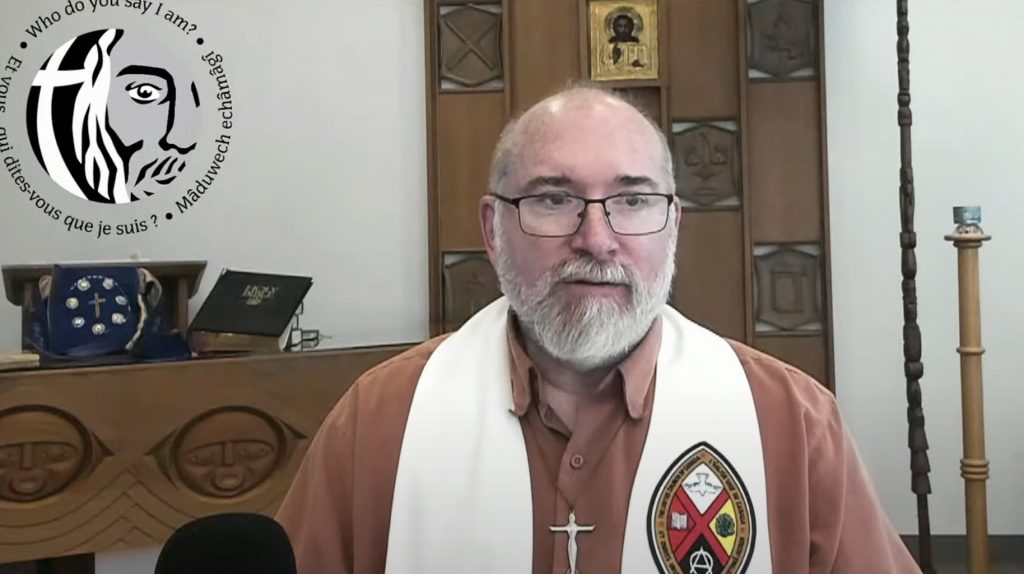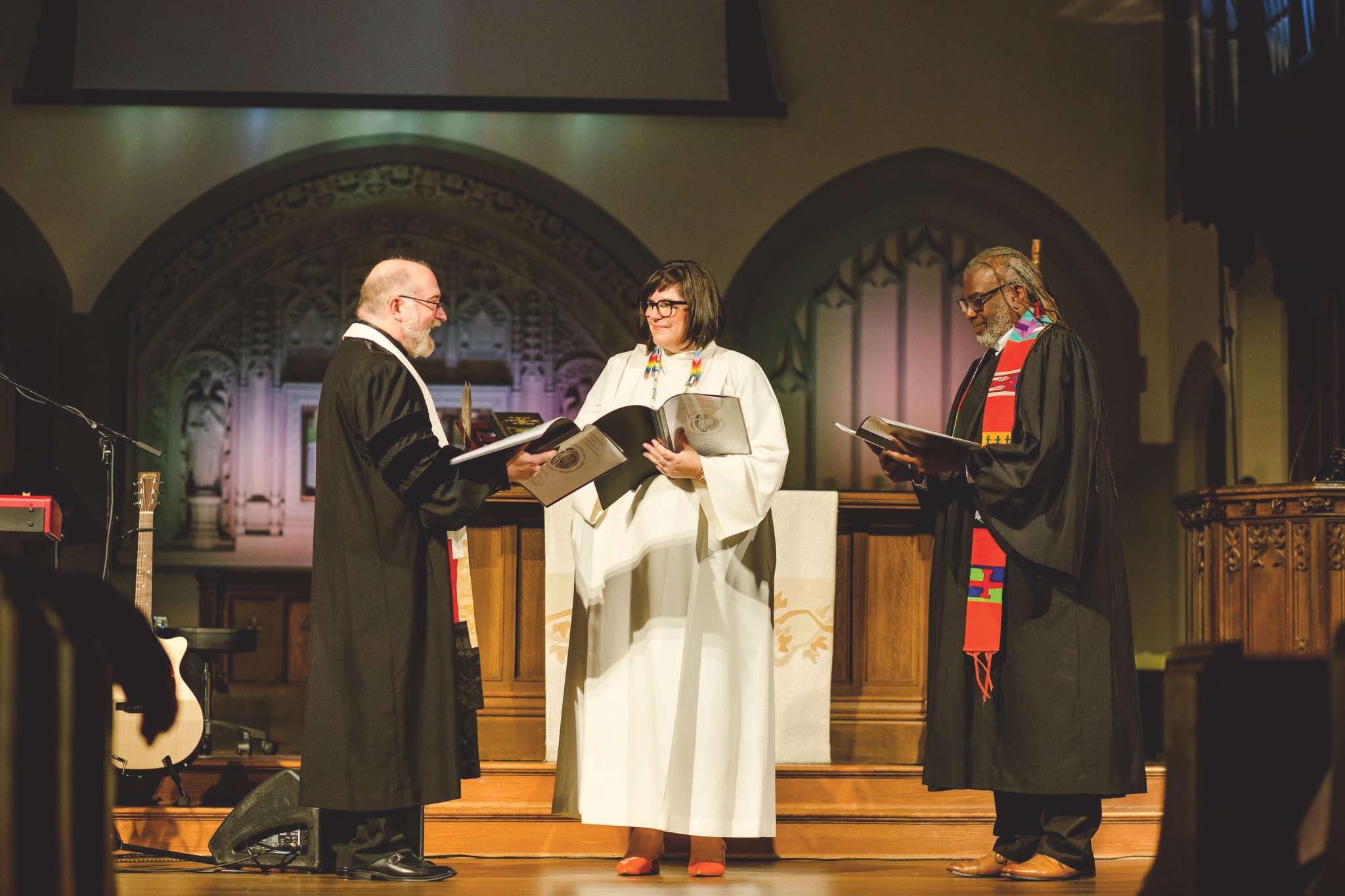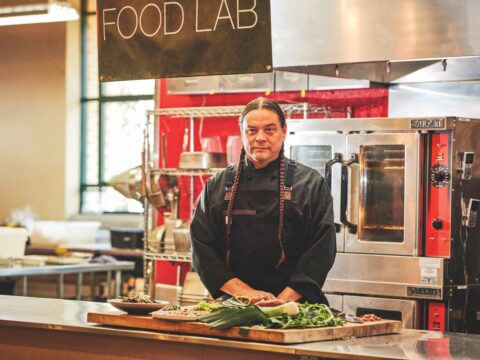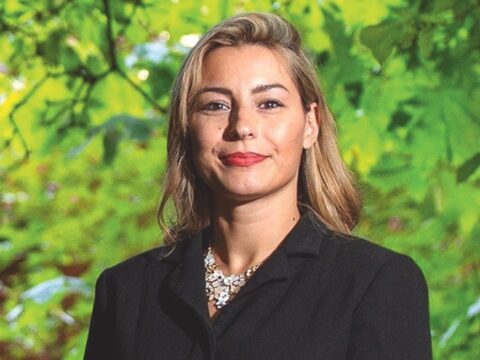By the time decision sessions were about to begin in late July, it was already clear that The United Church of Canada’s 44th General Council (GC44) would be one for the record books.
Dubbed a “marathon” by one of its Presbyterian guests, it began in February, held virtual information-gathering and discussion sessions, and then got 256 commissioners, plus staff and volunteers, together online for five days of decision-making from July 21 to July 25.
You may unsubscribe from any of our newsletters at any time.
At the end of the months-long process, Council had taken some significant actions. It agreed to create an autonomous Indigenous Church within the United Church and authorized the remit, a church-wide vote, needed to make that happen. GC44 also elected Rt. Rev. Carmen Lansdowne as the church’s first Indigenous female moderator. And it agreed to work on a series of principles to back up the church’s justice initiatives.
But Council may also be remembered for what it decided not to do. It didn’t agree to apply specific principles to the Palestine-Israel situation right away or to take immediate action to support Palestinians living under Israeli occupation. Either move could have aligned the United Church with human rights organizations and other churches that name the Israeli government’s actions as apartheid. Council also deferred a motion to work toward granting ordination status to designated lay ministers.
Perhaps most of all, GC44 will be known as the COVID-19 Council. The pandemic first forced a one-year postponement of the meeting, and then the traditional in-person gathering was moved online.
It also provided another surprise. Minutes after opening the July online decision-making sessions, then-moderator Very Rev. Richard Bott announced he had tested positive for COVID-19 three days earlier. Instead of sharing a high-tech Toronto studio with staff and volunteers, he was webcasting alone from General Council’s offices nearby, connected by several computers and five open chat lines.
No contingency plans were in place for anyone on the senior staff or volunteer team catching COVID. General Council, however, has a long tradition of having past moderators on hand to fill in for current moderators as needed. So Very Rev. Jordan Cantwell logged in from her home in Saskatoon and filled in for Bott from time to time.
But Bott was determined to carry on. Despite frequent coughing fits, he chaired most of the meeting. At one point, he offered commissioners a frank airing of fears about the future of the church. “There are a lot of people we haven’t seen back in the pews,” he said. “There are articles left, right and centre on my various feeds telling me that the church is disappearing and all those kinds of things. I hope and I pray that we will focus not on what we can’t do but what we can do.”
The brain fog that sometimes comes with COVID-19 surfaced early. Within a half-hour of opening decision-making, Bott forgot to announce a key enabling motion, leaving both general secretary Rev. Michael Blair and business committee chair Allan Buckingham visibly flustered. After a couple of strong hints, the moderator realized he’d dropped the ball.
Another misstep came at the end of a long Sunday afternoon session, when Bott announced that a vote to take no action on a series of controversial proposals on Palestine-Israel had carried. Blair audibly corrected him by saying the motion failed, sending it back to the facilitation team for another approach. Cantwell chaired the last few minutes of the session, saying the moderator was “exhausted.” After a night’s rest, he was back in the chair.
First-time commissioner Rev. Kathleen Anderson of the Crossroads pastoral charge in Halifax says she appreciated Bott’s “grace and compassion.” Still, she would have liked to see him pass the chair to Cantwell more often, “as a way to model boundaries to a church that is plagued by clergy burnout and exhaustion.”
“I hope that we don’t forget those moments, but work even harder to understand how we can build up beloved community, even in a virtual space.”
Throughout the meeting, Bott was hampered by a decision-making process that frustrated many commissioners. The situation led to open revolt before a single proposal had been adopted and left several commissioners questioning the process’s validity.
First used at the last General Council in 2018, the process was designed to confine the airing of proposals to smaller closed discussion groups of commissioners and invited guests. Council’s volunteer facilitation team of “respected church elders” used notes from those discussions and a survey of commissioners to divine the will of Council and craft “way forward” proposals.
The business table, led by Buckingham, was supposed to introduce those proposals, which were then confirmed or rejected by separate motions that didn’t include the wording of the original proposals.
“This process,” says Buckingham in an interview, “is designed to hear from as many voices as it can, and to use those voices to shape the will of the Council as a whole. You can call them compromise proposals, and in some ways, they are — but really they are a best effort to discern the will of the Council on a topic.”
Two online polls were used to check whether the suggested “way forward” reflected commissioners’ discussions. If the polls revealed dissent, commissioners could virtually put up their hands and speak to the whole Council before voting on what to do with the proposal. If there was no dissent, motions affirming proposals could pass easily.

It’s a process that worked well when most commissioners agreed with a proposal and didn’t hold strong opinions or beliefs. Otherwise, reaching compromises was difficult because commissioners couldn’t easily alter the original proposals.
The lack of small table groups made matters worse. At past Councils, they offered familiar places for discussion, social interaction and support. During testy sessions, table-group time could help commissioners talk through solutions to difficult issues. The groups were also a way for first-time commissioners to mix with veterans, make new contacts and learn how Council works.
Organizers, however, realized shortly before sessions began that the PheedLoop software, based on Zoom, didn’t allow enough small-group breakouts for such a large gathering. This meant that a chat function, open for all commissioners to see, was the only venue for socializing and easily making contact with other commissioners. But when commissioners began to use it to discuss business, organizers declared it had become “toxic” and shut it down during the final day of decisions.
Planning committee chair Sue Brodrick says the Council’s “main challenges” were misunderstandings about “how the business process was to happen.”
The process worked relatively well at the 2018 in-person meeting in Oshawa, Ont., where the business table, planners, moderator and staff could more easily read the mood of commissioners, and commissioners could readily challenge business committee decisions. But problems with the online version appeared with the first proposal being considered.
What turned out to be a simple editorial error, later repaired by an amendment, led some commissioners to believe that proposals to Council were being altered by the facilitation team or business committee, or both.
Council adopted the repaired proposal the next day, but not before some commissioners began to doubt the validity of the way Council was doing business and question whether non-voting participants — including the business table and invited guests — were changing or shaping proposals.
More General Council coverage:
With the whole process in question, Blair told commissioners that the only avenue was to reconsider the procedural motion passed in February. Duly moved and seconded by frustrated commissioners, this motion to review the February decision threatened to pull down the underpinnings of the meeting, but needed a two-thirds majority.
Blair likely understood that commissioners wouldn’t derail Council’s process, however flawed. The motion was indeed defeated, and commissioners went on to pass relatively innocuous motions in their third two-hour decision session. But serious mistrust about the process had already bubbled to the surface.
It never really dissipated, despite daily reproaches from Buckingham and a gentler plea from Cantwell to “trust one another and trust the process.”
That plea, in part, led to a heartfelt comment about trust from a commissioner who was participating by mobile phone, clearly seen behind the steering wheel of a vehicle. Another first for General Council, it sparked a request from Bott to all who were driving while attending Council: “If you are going to talk or make presentations, please pull over…just so that we as a community can know you are safe.”
Cracks in the process continued to widen as it became apparent that the business committee was altering proposals from the facilitation team. “It’s unfortunate when a member of the facilitation team could come to the floor and say, ‘We didn’t say that,’” says commissioner Rev. Paul Douglas Walfall of Fort Saskatchewan, Alta.
Despite having quickly pivoted to online work and worship in local communities of faith during the pandemic, the United Church still has much to learn about how to make large online meetings work well.
Blair notes that this first online Council, as well as being his first as general secretary, was also the first in a new church structure, with the denomination having moved to a three-court model in 2019. He calls the gathering “an incredible learning opportunity,” with lessons that will be applied to future online meetings of the church.
As for Bott, he’d like to learn from those times when “our physical separation worked against the behaviours that holy manners call us to.”
“I hope that we don’t forget those moments, but work even harder to understand how we can build up beloved community, even in a virtual space,” he says.
***
Mike Milne is a writer in Owen Sound, Ont.
This story also appears in Broadview’s October/November 2022 issue with the title “The COVID-19 council.”















I wasn’t aware of much of what is recounted in this article. I thought for the most part the process was okay, and it allowed those of us from remote areas to access a lot of the sessions. I did find it difficult to locate discussions, learning sessions, decisions about specific issues that were of interest to me.